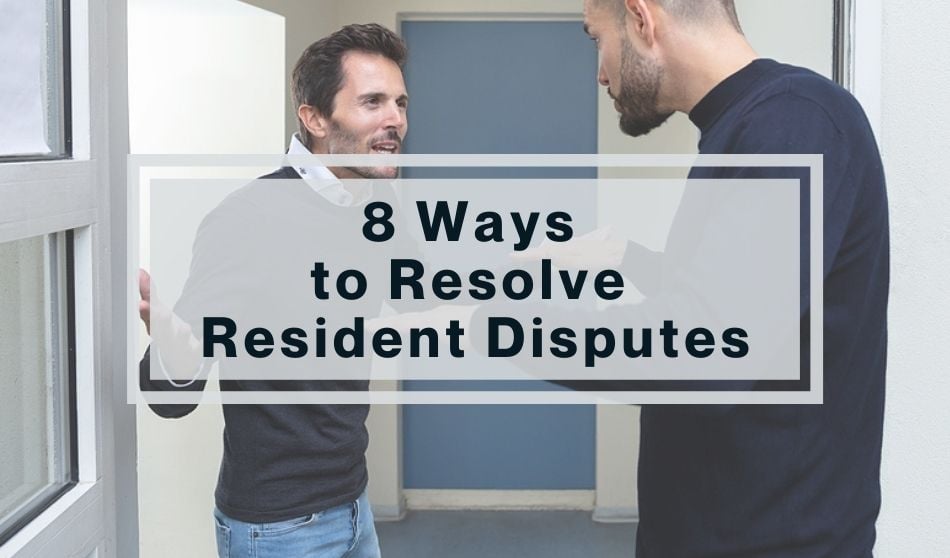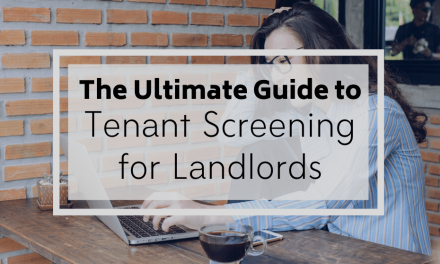
Understanding how to navigate and when to help resolve tenant disputes is crucial for property management. Setting clear expectations in the lease, being hands-on, and listening to tenant complaints are essential. Proposing mediation, staying professional, documenting interactions, and knowing when to take action is vital for effective conflict resolution.
Being a landlord can be stressful, but resolving tenant disputes is crucial for property management. Setting clear expectations in the lease, being hands-on, and listening to tenant complaints are essential. Proposing mediation, staying professional, documenting interactions, and knowing when to take action are vital for effective conflict resolution.
Being a landlord can be stressful. Many investors may even consider unloading their properties because of tax complications or conflicts with difficult tenants. But these are solvable problems. While a 1031 exchange can help you defer capital gains taxes, some basic conflict resolution skills can help you resolve tenant problems before they become unmanageable. Unfortunately, most courses on rental property investment concentrate too much on technical matters, such as how to use a comparative market analysis or how to perform tenant background checks, and not enough on basic people skills and conflict resolution. Read on for some tried-and-true ways to resolve resident disputes.
Set Clear Expectations in the Lease
Outlining your expectations in the lease can prevent a lot of disputes from happening in the first place. Many landlords establish an informal “code of conduct” in their lease or move-in materials. Outline your expectations on common problems — such as noise or quiet hours, smoking, tenant altercations, and move-in and move-out procedures — as well as potential penalties for violating the rules. It can be helpful to refer to state or local regulations about tenants’ rights to safety, putting the weight of the law behind your rules.
Learn more: Quiet Hours for Rental Properties | Tips for Landlords and Managers
Don’t Take a Hands-Off Approach
There are a lot of ways to sit back and generate passive income, but becoming a landlord and renting an investment property isn’t one of them. If your previous investment experience was through a real estate investment app, you may not be prepared for just how hands-on a landlord’s role can be. Owning a rental property is an active investment, and a smart landlord is proactive and engaged. If you don’t want to be part of the hands-on process, you may need to hire a property manager.
Many landlords hesitate to step into tenant disputes, assuming that tenants will resolve their differences themselves. Although this is sometimes true, it can also cause conflicts to spiral out of control, making later attempts at mediation more difficult. When you receive a complaint from a tenant, don’t brush it off, even if you think it’s an isolated incident. Step in early, and you may prevent a small problem from growing into something serious.
Learn more: Top Tenant Complaints and How to Handle Them
Listen, Listen, Listen
When a tenant comes to you with a complaint, never minimize or brush them off. Hear them out and acknowledge their complaint. Sometimes they just want someone to listen to them and express sympathy.
When you tell offending tenants that a complaint has been lodged against them, listen to their defense too. Don’t make any assumptions, and don’t make them feel like you’ve already made up your mind. If they ask who lodged a complaint against them, try not to disclose specifics, which could lead to further conflict.
Propose Mediation
If the dispute becomes more serious after talking to both parties, propose a mediation session with you. At this meeting, allow both parties to air their grievances and come up with a possible solution. Everyone should leave with a clear plan and course of action.
If the action that caused the complaint is a violation of the lease terms or local regulations, explain this in the meeting and clearly state what penalties could be levied if the violations continue. Remember, your ability to live off rental income is related to the stability of your tenants. Their problems are your problems, too, and solving them is in everyone’s best interests.
Always Be Professional and Objective
Although you’re not a disinterested third party, you should try to act like one when you’re resolving tenant disputes. Taking sides can cause even bigger problems. Always use a polite tone of voice, and keep your communication brief and direct. Restrict phone calls and other communication to business hours, even if you have a personal relationship with one or both parties. Ultimately, you need to serve your tenants’ interests first. If you find it difficult to put their concerns ahead of your own, consider using a professional property management service.
Keep a Paper Trail
Always document contact with each tenant — from the first complaint to the resolution. Issue “receipts” to each party after each communication. You can do this on paper, through email, or keep track of all communication through your property management software. If the dispute escalates into a legal matter, this paper trail will be extremely important.
Follow Up With Both Parties More Than Once
Follow up with tenants after each communication so they know you’re listening and fully engaged. If your mediation session ends with a promise to change, follow up with both parties to see if they’re following the terms of your agreement. Has the offending behavior stopped? If it has continued, why?
Understand When You’ve Reached an Impasse
If you’re talking in circles, and one party is incapable or unwilling to change their behavior, don’t hesitate to take action. If you drag your feet, you risk the offended party moving out. If the problem really can’t be solved, and there’s a clear party at fault, you may have no choice but to issue an eviction notice.
In many cities and states, evicted tenants have a formal process through which they can challenge their eviction. If this happens, the documentation you’ve been keeping will become very important. The paper trail presents a snapshot of how the dispute started and how it evolved. It proves you gave the evicted tenant fair warning and a chance to correct their behavior before issuing the eviction notice. If matters continue to escalate during the eviction, don’t hesitate to contact law enforcement if a tenant gets physically aggressive or threatens you or another resident.
Learn more: What Is a Legal Eviction Process?
Losing a tenant can be scary, especially for a novice landlord. However, home prices are rising faster than incomes, which makes buying a home more difficult. In this hot rental market, you’ll likely have a large pool of potential tenants to fill your vacant unit.






I live in a Zell property. I am continuously brushed off, ignored, and must beg for service. I’ve gone to the office to see someone face to face for cockroach issues and was yelled at by staff then told I started the problem; the appointed manager for my apartment called and took her side, and lectured me. This after I repeatedly had sent requests for service. I asked for the owner but was told they will not give that information.
I am extremely disappointed with Rentec Direct for their lack of accountability in ensuring the legitimacy of their clients. Their admission that they do not verify the identity of anyone using their property management software is unacceptable. It is shocking to learn that they only verify a customer’s credit score and whether they have a merchant’s bank account, but fail to verify if the person using their software is a licensed real estate agent. This loophole allows unscrupulous landlords to unlawfully collect rent money from their tenants, putting both tenants and the reputation of the real estate industry at risk. Rentec Direct needs to take responsibility for the consequences of their lax verification process and make the necessary changes to prevent further harm. I cannot in good conscience recommend their services to anyone.
I am extremely disappointed with Rentec Direct for their lack of accountability in ensuring the legitimacy of their clients. Their admission that they do not verify the identity of anyone using their property management software is unacceptable. It is shocking to learn that they only verify a customer’s credit score and whether they have a merchant’s bank account, but fail to verify if the person using their software is a licensed real estate agent. This loophole allows unscrupulous landlords to unlawfully collect rent money from their tenants, putting both tenants and the reputation of the real estate industry at risk. Rentec Direct needs to take responsibility for the consequences of their lax verification process and make the necessary changes to prevent further harm. I cannot in good conscience recommend their services to anyone.